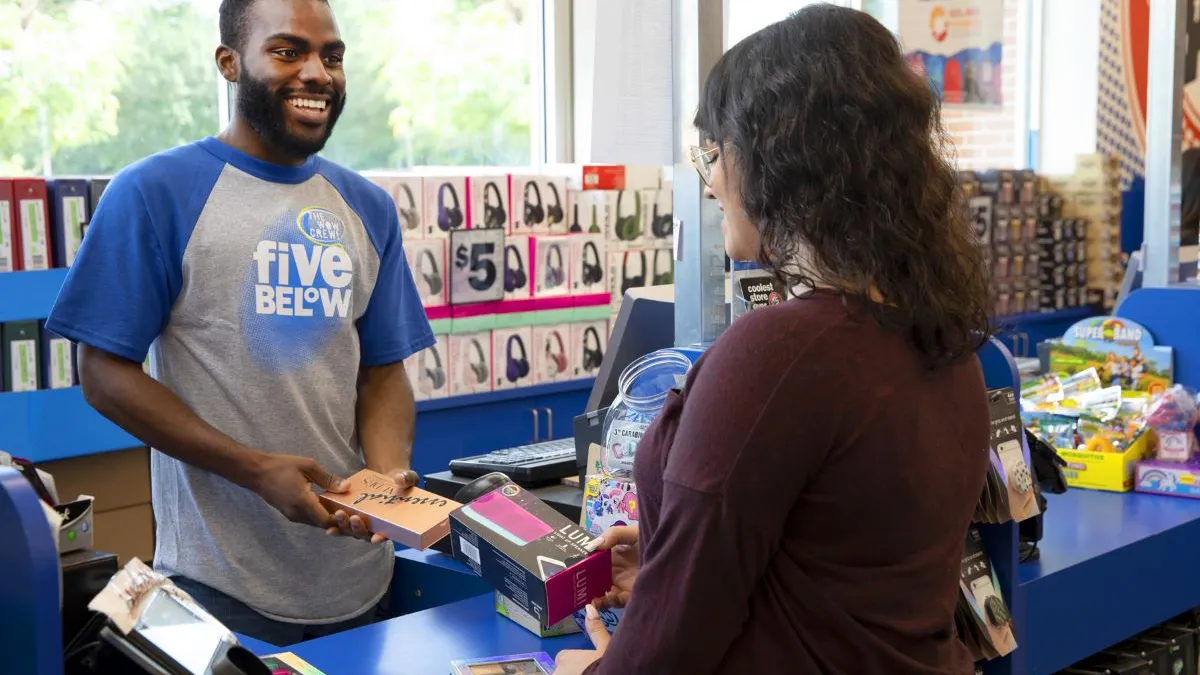Dive Brief:
-
After encountering a higher-than-expected level of shrink last year, Five Below is limiting the number of self-checkouts at its stores, CEO Joel Anderson told analysts on Wednesday.
-
At some stores, the discount retailer will also be checking receipts, boosting store payroll and adding guards, according to an earnings call transcript.
-
The news comes as Five Below reported that, in part thanks to an extra week, Q4 net sales rose 19% to $1.34 billion, with net income up 18% to $202.2 million. Excluding the bonus week, net sales rose 14.9% and comps rose 3.1%, per a company press release.
Dive Insight:
Five Below is joining other retailers in rethinking how it employs self-checkout.
The technology has been touted as convenient for customers and cheaper for retailers than traditional store labor, but many retailers went overboard when implementing it, according to Nikki Baird, vice president of strategy at Aptos Retail.
“Retailers have been breaking all the rules. The rule of thumb for self-checkout was a ratio of one-to-four,” Baird said. “And that was so that the store associates could go and help if something went wrong. All these retailers complain about organized retail crime and that it’s through the roof. That’s because they aren't staffing their stores, and now everybody knows that, so it's a free for all.”
Five Below tested several shrink-mitigation initiatives in the third and fourth quarters, including posting more guards. But scaling back self-checkout and having more associates at the front of the store proved to be most effective in fighting inventory loss, Anderson said. Now, all stores have associates assisting with checkout, including self-checkout, and the primary option at high-shrink stores is traditional over-the-counter associate checkout, he said.
Having store associates assist customers more often “is a nice balance between we're ensuring everything is being scanned, [and] we're providing a heightened level of customer experience,” he also said.
Dollar General has also boosted its front-end staffing, and most Target stores now limit self-checkout to purchases of 10 items or less.
A 2022 study from the University of Leicester in England estimated that self-checkout in the U.S. and elsewhere causes between one-fifth and nearly one-quarter of all unknown store losses. Lost merchandise from self-checkout causes more shrink than organized retail crime in many stores, according to Trevor Wagener, director of the research center and chief economist at the Computer & Communications Industry Association.
















